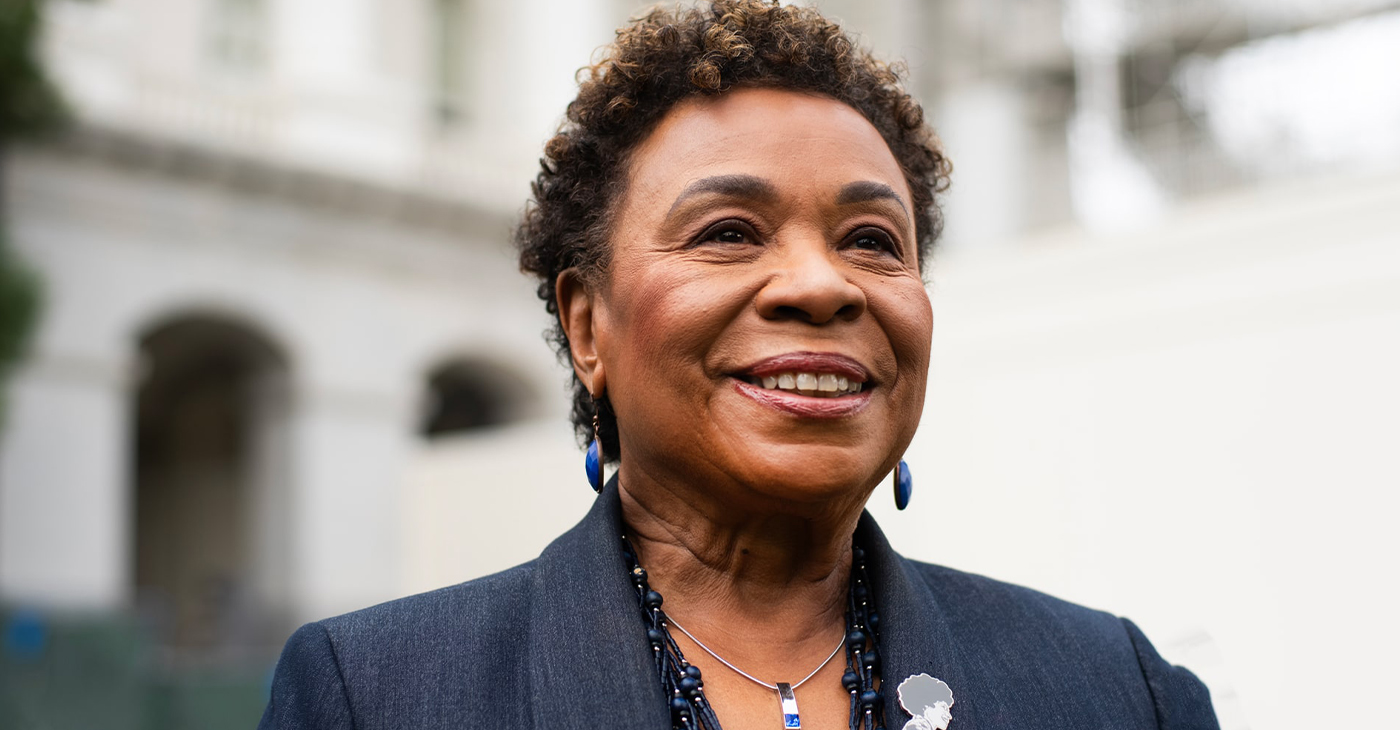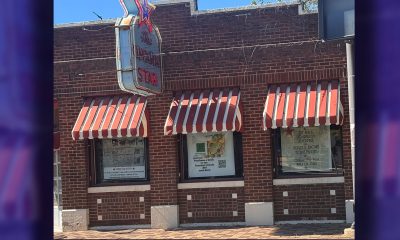Oakland
Opinion: News Organizations Tell State Leaders Dynamex Law Will Gut Black Press

By Regina Brown Wilson
California Black Media
This is a direct appeal to Governor Newsom, Assemblymember Lorena Gonzalez and our entire state Legislature. I’m writing this on behalf of the more than 20 African American-owned newspapers that operate in cities and towns across California.
As the leaders we’ve elected to represent and protect the interests of all Californians, we are asking each of you to search your hearts, look beyond blind spots, step in, and do the one thing that will prevent AB5, known as Assembly Bill 5, from putting the Black press in California out of business. That is: Exempt the contract couriers who deliver our newspapers from being reclassified as employees under AB5.
The bill Assemblymember Gonzalez is proposing intends to bring definition to our Supreme Court’s Dynamex decision and defend the rights of working Californians.
But in the push to create a more equitable California for all, we must not lose sight of the specific needs and priorities of our most vulnerable communities.
Our best intentions may sometimes harm some Californians while uplifting others. We must always be as cautious and fair as we are forceful and deliberate in approaching our most challenging problems.
Shouldn’t AB5 be helping to narrow the immense wealth gap that exists in the richest state of the nation? The disparity between the ultra-rich and the almost 20 million people in California who live below the poverty line — or who fight to hover just above it — is growing.
For African-American newspaper owners, surviving in an industry with emergence of the internet has almost put us on life support, AB5 would do the exact opposite of what Gonzalez wants it to achieve. She might as well just pull the plug on our businesses.
Although our publications reach almost 2 million Californians of all races, most of our operations are still family-owned businesses.
We are small shops with multi-tasking staff members who struggle to attract advertising, grind to meet deadlines and tighten belts to remain profitable. None of our papers can afford to offer full-time jobs with benefits to the part-time delivery people who work, on average, about four hours on the days our newspapers are published. Many of our papers are weeklies.
My dad, Hardy Brown, former publisher of Black Voice News in Riverside, remembers a time when he had to gather the news stories, type them, take the copy to the printer and then deliver the published papers by himself throughout the Inland Empire at night. He would drop them off at churches on Sunday mornings because he could not afford to pay a courier. AB5 would take Black newspapers back to those difficult days.
Although some of our publications in California have websites, more than 60 percent of them still publish only print editions.
We’ve done the math. Having to hire couriers as full-time employees would force us to limit our circulation areas or raise the prices of our papers. Either option would hurt our revenue so bad it would no longer make sense to stay in business. We all know the backbone of our democracy is a free and independent press providing truthful, objective and balanced information critical to the lives, health and overall wellbeing of all our citizens.
Since Freedom’s Journal, the first African-American newspaper, was published in 1827, the Black press in the United States has played a central role in the lives of Black Americans as an advocate, trusted source of information and rallying point for often life-and-death issues directly affecting our communities. From the years of legal slavery to the Emancipation Proclamation, through the Civil War and the eras of Jim Crow and lynching — to the fight for civil rights and economic improvement — we have always depended on the Black press for news crucial to keeping our families safe, informing our decisions and shaping our opinions.
Today, Black newspapers across the country have a combined circulation of about 15 million. Americans read Black publications even though mainstream newspapers exist. Those national or citywide papers often overlook or under-report very important issues vital to the lives of African Americans. Our papers bring unique perspectives to the news, pointing out how news stories may affect Black Americans differently. We expand the base of knowledge on every topic we cover and bring untold stories to the historical record. Most of us also write in familiar and relatable voices, and from points of view, that resonate with our readers.
In California, the cost to live in our coastal cities has become unaffordable for the majority of African Americans. More and more, we see our families migrating to distant suburbs or inland cities and towns east of Los Angeles, the Bay Area, the Central Coast and San Diego.
While many of our papers are still located in historic Black neighborhoods near or our around those major metropolitan areas, our drop-off points have become more far-flung and the radius of our circulation areas have dramatically increased. Now, more so than ever before, the role of our contract delivery drivers is an essential aspect of our businesses.
We understand the importance of passing AB 5 to introduce guidelines for implementing the Dynamex decision. But we also need your intervention to protect the legacy and livelihood of our publications as we live up to the responsibility upon us that we never take lightly: That is to strengthen and maintain freedom and democracy in our state and across our country.
In the words of educator and journalist Ida B. Wells, “The people must know before they can act and there is no educator like the press.”
Regina B. Wilson is the Executive Director, California Black Media.
Activism
Oakland Post: Week of January 1 – 7, 2025
The printed Weekly Edition of the Oakland Post: Week of January 1 – 7, 2025

To enlarge your view of this issue, use the slider, magnifying glass icon or full page icon in the lower right corner of the browser window.
Activism
OPINION: Solutions to the Housing Crisis Exist, but Governments Waste Tax Dollars Instead
People who are homeless want real housing, not temporary shelters that are dangerous and crowded. The City of Oakland has been telling the public that the sweeps of encampments are an effective solution, but it just pushes people from block to block, wasting tax money on paying police officers overtime in a budget crisis. This is true at the state level too, where California spends $42,000 per person that is unhoused per year. The city and state could just help pay residents’ rent, rather than pay for police to harass people on the streets, many of whom have disabilities or are elders.

By Kimberly King and Victoria King
In a powerful demonstration of grassroots organizing, activists joined forces in direct action that started on Dec. 17 to call for the establishment of sanctuary communities across the West Coast
The goal of the effort is to raise awareness about misleading narratives around homelessness and to present concrete solutions to a crisis that leaves over 35,000 people unsheltered each night in the Bay Area.
The action, led by members of Oakland’s Wood Street Commons and Homefullness/Poor Magazine, represents a direct response to the U.S. Supreme Court and Gov. Gavin Newsom’s approach to homelessness. At the core of the movement is a fundamental truth: housing is a human right, not a commodity to be bought and sold for profit.
People who are homeless want real housing, not temporary shelters that are dangerous and crowded. The City of Oakland has been telling the public that the sweeps of encampments are an effective solution, but it just pushes people from block to block, wasting tax money on paying police officers overtime in a budget crisis. This is true at the state level too, where California spends $42,000 per person that is unhoused per year. The city and state could just help pay residents’ rent, rather than pay for police to harass people on the streets, many of whom have disabilities or are elders.
The coalition of organizations, led by people with lived experience of homelessness, coordinated their efforts to show the unity behind this movement, including setting up sweeps-free sanctuary communities and resource centers and presenting solutions to city council. The message is clear: unhoused residents refuse to remain invisible in the face of policies that have resulted in 347 deaths for people experiencing homelessness in Alameda County just this year alone.
The coalition presented four key demands, each addressing different aspects of the housing crisis. First, they called for the establishment of sanctuary communities instead of sweeps, urging the redirection of encampment management funds toward positive solutions like encampment upgrades and permanent low to no-income housing.
The second demand focuses on utilizing public land for public good, specifically identifying vacant properties like the Hilton Hotel on Port of Oakland land. The coalition emphasized the immediate availability of these spaces to house hundreds of currently unhoused residents.
Prevention forms the third pillar of the coalition’s demands, with calls for strengthened renter’s rights, rent subsidies, and a permanent moratorium on rental evictions and foreclosures for non-payment.
Finally, the coalition demands the defunding of coercive “Care Courts,” advocating instead for non-carceral approaches to mental health care and harm reduction.
The Poor People’s Campaign’s motto, “When we lift from the bottom, no one gets left behind,” encapsulates the spirit of the action. Daily activities, including opening prayers for those who have died while homeless, served as powerful reminders of the human cost of failed housing policies that treat housing as a commodity rather than a fundamental right.
As this crisis continues to unfold, these activist groups have made it clear that the solution to homelessness must come from those most directly affected by it.
About the Authors
Kimberly King and Victoria King are Oakland Residents who advocate for the unhoused and propose solutions to end homelessness and housing insecurity.
Alameda County
Barbara Lee Releases Statement on Possible Run for Mayor of Oakland
Already, her backers are organizing to urge her to run for the position left vacant by the recall of former Mayor Sheng Thao, which became effective on Dec. 17. At present, Council President Nikki Fortunato Bas is serving temporarily as mayor.

By Ken Epstein
Questions continue to swirl in Oakland and throughout the Bay Area over the possibility that Congresswoman Barbara Lee might run for mayor of Oakland after she leaves Congress in January.
Already, her backers are organizing to urge her to run for the position left vacant by the recall of former Mayor Sheng Thao, which became effective on Dec. 17.
At present, Council President Nikki Fortunato Bas is serving temporarily as mayor.
Lee is already meeting with city leaders and learning more about the major issues facing the city. In a social media post on Dec. 20, she released a statement clarifying her timeline for making a decision.
“The decision to run for Mayor of Oakland, a city that I have long called home, is not one I take lightly,” she said.
“As my time in Congress wraps up, my current priority is navigating the crisis before us in DC. I am working around the clock to reach a deal that will keep our government open and provide crucial resources for my district,” she continued.
“I will announce my intentions in early January,” Congresswoman Lee said.
-

 Activism2 weeks ago
Activism2 weeks agoBooks for Ghana
-

 Activism3 weeks ago
Activism3 weeks agoPost News Group to Host Second Town Hall on Racism, Hate Crimes
-

 Activism3 weeks ago
Activism3 weeks agoButler, Lee Celebrate Passage of Bill to Honor Congresswoman Shirley Chisholm with Congressional Gold Medal
-

 Arts and Culture2 weeks ago
Arts and Culture2 weeks agoPromise Marks Performs Songs of Etta James in One-Woman Show, “A Sunday Kind of Love” at the Black Repertory Theater in Berkeley
-

 Activism3 weeks ago
Activism3 weeks agoDelta Sigma Theta Alumnae Chapters Host World AIDS Day Event
-

 Activism2 weeks ago
Activism2 weeks ago‘Donald Trump Is Not a God:’ Rep. Bennie Thompson Blasts Trump’s Call to Jail Him
-

 Business3 weeks ago
Business3 weeks agoLandlords Are Using AI to Raise Rents — And California Cities Are Leading the Pushback
-

 Activism3 weeks ago
Activism3 weeks agoOakland Post: Week of December 11 – 17, 2024
























































